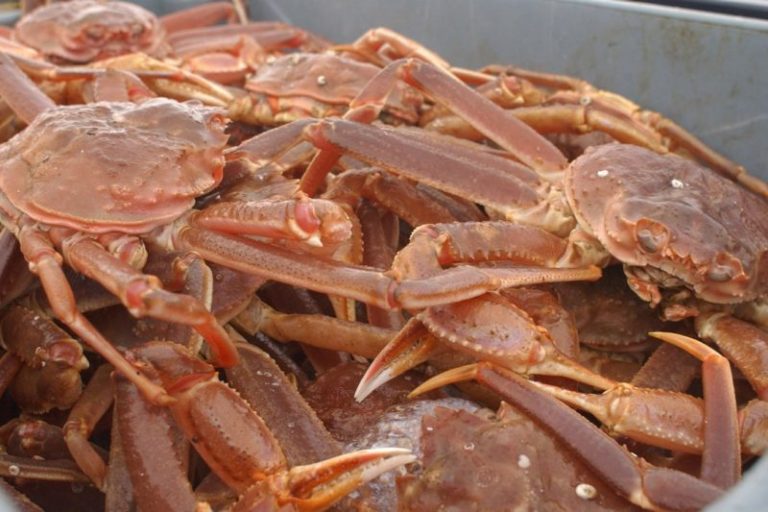Ocean Resource Privatization
Articles Posted by Date
The New England groundfish debacle (Part III): who or what is at fault? Nils E. Stolpe/FishNet
NILS STOLPE: The New England groundfish debacle (Part IV): Is cutting back harvest really the answer?
While it’s a fact that’s hardly ever acknowledged, the assumption in fisheries management is that if the population of a stock of fish isn’t at some arbitrary level, it’s because of too much fishing. Hence the term “overfished.” Hence the mandated knee jerk reaction of the fisheries managers to not enough fish; cut back on fishing. What of other factors? They don’t count. It’s all about fishing, because fishing is all that the managers can control; it’s their Maslow’s Hammer. When it comes to the oceans it seems as if it’s about all that the industry connected mega-foundations that support the anti-fishing ENGOs with hundreds of millions of dollars a year in “donations” are interested in controlling. Read the article here
-
Recent Posts
-

“If he wants war, we’ll give him war.” Company not rebuilding shrimp plant
Workers at the former shrimp plant in Black Duck Cove on the Great Northern Peninsula are ‘devastated’ by the news Gulf Shrimp Limited won’t be rebuilding, Read More » -
Tasty abalone carefully farmed under Monterey’s wharf
Way out at the very end of the Municipal Wharf in Monterey, Art Seavey descends through a trapdoor, walks on a handmade network of slippery wooden Read More » -
This is Fish Radio. I’m Laine Welch – L.O.S.T
Alaska and the U.S. can’t lay any claim to the Arctic, unless it signs on to the Law of the Sea Treaty, called LOST. Senator Lisa Read More » -
Environmental Defense Fund — Monitoring isn’t the fisherman’s enemy
The port of New Bedford has been rocked by allegations of widespread and longstanding corruption by one of the industry’s biggest players. It is understandable that Read More » -

Take a look inside Shetland fishing crew’s 30% bigger boat
She made her maiden appearance in Shetland’s largest port last weekend. Skipper Chris Duncan described her as “top class”. And it is hard to argue, considering Read More » -

N.L.’s 4R harvesters await Quebec crab price
Crab harvesters in zone 4R area 13 are wondering if their unique advantage to sell to Quebec will soon come in handy. With a 50 per Read More » -
Japan to halve tuna catch in Northern Pacific
Japan plans to slash by half the amount of juvenile bluefin tuna taken from the Northern Pacific starting in 2015, compared to the 2002-2004 average, reports Read More » -
Massachusetts Lawmakers to help small-boat fishermen qualify for third round of federal disaster aid
This is for the third installment of designed in 2012 to help fishermen catch some of the dollars they lost under significant cuts to groundfish catch Read More » -
Alaska’s Dan Sullivan Delighted with U.S. Senate Committee Assignments
Sullivan will serve on Armed Services, Veterans Affairs, Commerce, and Environment & Public Works, and he says he can hardly pick a favorite. “Well look, I’m Read More » -

One fish, two fish: The local commercial fishing industry faces daunting challenges despite high demand
It’s just after noon on an unseasonably warm Friday in early spring. Naples has had a string of cold days and now this hot one, but Read More » -
Changing food source bodes ill for whales, cod
Friedland believes this connection might help explain why Atlantic cod still remains at low population levels despite nearly 20 years of increasingly harsh fishing regulations. more@capecodtimes Read More » -

Move Over! Industrial aquaculture/aquafarming has Maine lobstermen and fishermen hot under the collar
High-profile privately funded ventures have lately been converging on this corner of the North Atlantic. Norwegian owned American Aquafarms wants to salmon in Frenchman Bay, and Read More » -

‘This is the war’: New Bedford at center of conflict between fishing, wind industries
New Bedford is the top commercial fishing port in the country, but it’s also emerging as an epicenter of conflict between the fishing industry and the Read More » -
Three offshore wind companies – The Ghost of Cape Wind
The three offshore wind companies seeking to build large-scale turbine projects on ocean waters south of Martha’s Vineyard said emphatically Friday that financing their projects wouldn’t Read More » -
Baltimore crab houses haven’t any crabs
The crabs aren’t coming in. The problem is on the supply side. The Maryland crab harvest doesn’t begin until April 1, and the supply from the Read More » -
Ecosystem-based management is focus of May 22 fisheries forum in Groton
The future of sustainable fisheries in New England and U.S. waters will be the topic from 3:30 to 5:30 p.m. May 22 at a public forum Read More » -
The Fisheries Broadcast with John Furlong – Wharf troubles in St. Mary’s Bay, and How to kill a seal humanely
The Fisheries Broadcast with John Furlong – Today on the show, environmental groups try to shutdown the lobster fishery. – What factors are involved for Fishermen before deciding Read More » -
Appeals court to review approval of BP settlement
NEW ORLEANS (AP) — A year ago, lawyers for BP and Gulf Coast residents and businesses took turns urging a federal judge to approve their settlement Read More » -
Scientists track drop in lobster numbers
Marine scientists are not sure what is causing the decline in baby lobster settlements in their traditional near-shore, rocky habitats except they now seem to rule Read More » -
Criticism of NPFMC bycatch measures failed to take successes into account
OPINION: A recent commentary singing the praises of bycatch reduction in Canada, and asserting that the North Pacific Fishery Management Council is unable or unwilling to Read More » -
SMAST professor researches fishing nets to help save juvenile haddock
Many commercial fishermen are appalled by regulations that force them to throw undersized fish back into the sea, when they are likely to be already dead. Read More » -
Massachusetts Lawmakers press NOAA to ‘suspend’ May 1 quota cuts
Citing widespread evidence of an abundance of important commercial in shore fish stocks and a scientific study that found flaws in the modeling methods used by Read More » -
Athearn Marine Agency Boat of the Week: 44′ Calvin Beal Lobster Boat, 750HP John Deere
To review specifications, information, with 31 photos, >click here<, To see all the boats in this series >click here< 12:55 Read More » -
Commercial Dungeness crab season delayed by California Fish and Wildlife
The California Department of Fish and Wildlife on Friday delayed the opening of the commercial Dungeness crab season, citing the need to protect humpback whales and Read More » -

Max Strahan driven by “duty” to have stricter measures adopted
To many federal and state fisheries managers, and to most people in the lobster industry, the name Max Strahan conjures images of a fanatic determined to Read More »
-
Archives
- December 2024 (106)
- November 2024 (161)
- October 2024 (170)
- September 2024 (180)
- August 2024 (178)
- July 2024 (171)
- June 2024 (172)
- May 2024 (191)
- April 2024 (191)
- March 2024 (209)
- February 2024 (192)
- January 2024 (211)
- December 2023 (188)
- November 2023 (202)
- October 2023 (180)
- September 2023 (101)
- August 2023 (241)
- July 2023 (237)
- June 2023 (211)
- May 2023 (232)
- April 2023 (210)
- March 2023 (215)
- February 2023 (179)
- January 2023 (187)
- December 2022 (178)
- November 2022 (187)
- October 2022 (190)
- September 2022 (177)
- August 2022 (203)
- July 2022 (186)
- June 2022 (184)
- May 2022 (186)
- April 2022 (190)
- March 2022 (219)
- February 2022 (167)
- January 2022 (192)
- December 2021 (191)
- November 2021 (182)
- October 2021 (196)
- September 2021 (197)
- August 2021 (205)
- July 2021 (221)
- June 2021 (211)
- May 2021 (221)
- April 2021 (204)
- March 2021 (202)
- February 2021 (188)
- January 2021 (195)
- December 2020 (193)
- November 2020 (181)
- October 2020 (204)
- September 2020 (195)
- August 2020 (189)
- July 2020 (205)
- June 2020 (194)
- May 2020 (225)
- April 2020 (218)
- March 2020 (216)
- February 2020 (209)
- January 2020 (233)
- December 2019 (227)
- November 2019 (240)
- October 2019 (241)
- September 2019 (241)
- August 2019 (270)
- July 2019 (288)
- June 2019 (270)
- May 2019 (263)
- April 2019 (223)
- March 2019 (210)
- February 2019 (155)
- January 2019 (117)
- December 2018 (216)
- November 2018 (169)
- October 2018 (218)
- September 2018 (247)
- August 2018 (258)
- July 2018 (259)
- June 2018 (250)
- May 2018 (251)
- April 2018 (246)
- March 2018 (266)
- February 2018 (256)
- January 2018 (278)
- December 2017 (309)
- November 2017 (281)
- October 2017 (288)
- September 2017 (275)
- August 2017 (284)
- July 2017 (287)
- June 2017 (273)
- May 2017 (276)
- April 2017 (275)
- March 2017 (300)
- February 2017 (252)
- January 2017 (288)
- December 2016 (263)
- November 2016 (268)
- October 2016 (287)
- September 2016 (284)
- August 2016 (293)
- July 2016 (286)
- June 2016 (273)
- May 2016 (246)
- April 2016 (267)
- March 2016 (260)
- February 2016 (265)
- January 2016 (269)
- December 2015 (266)
- November 2015 (281)
- October 2015 (289)
- September 2015 (286)
- August 2015 (298)
- July 2015 (294)
- June 2015 (329)
- May 2015 (316)
- April 2015 (317)
- March 2015 (324)
- February 2015 (301)
- January 2015 (332)
- December 2014 (322)
- November 2014 (330)
- October 2014 (382)
- September 2014 (340)
- August 2014 (347)
- July 2014 (376)
- June 2014 (401)
- May 2014 (344)
- April 2014 (341)
- March 2014 (375)
- February 2014 (374)
- January 2014 (360)
- December 2013 (294)
- November 2013 (372)
- October 2013 (391)
- September 2013 (461)
- August 2013 (566)
- July 2013 (526)
- June 2013 (447)
- May 2013 (475)
- April 2013 (508)
- March 2013 (459)
- February 2013 (352)
- January 2013 (265)
- December 2012 (206)
- November 2012 (168)
- October 2012 (187)
- September 2012 (126)
- August 2012 (4)
Tags
Alaska Alaska Department of Fish and Game Athearn Marine Agency Atlantic States Marine Fisheries Commission Boat of the Week BOEM Brexit British Columbia California canada Coast Guard commercial fisherman commercial fishermen commercial fishing Coronavirus Department of Fisheries and Oceans DFO Dungeness crab FFAW FISH-NL Gulf of Maine Gulf of St. Lawrence lobster Louisiana maine massachusetts National Marine Fisheries Service new-england-fishery-management-council Newfoundland and Labrador New Jersey NMFS NOAA North Atlantic right whale North Carolina Fisheries Association North Pacific Fishery Management Council Nova Scotia Obituary offshore wind offshore wind farm offshore wind farms Oregon Scotland U.S. Coast Guard United Kingdom weekly update
Comments
- Jerry archer on Brussels demand Keir Starmer surrenders UK fishing rights for EU deal
- Deborah on The largest offshore wind energy farm causes shock: The strange effect caused by one of its turbines
- Jk on ‘Radio went dead as he was giving the mayday’: witness recalls hearing moments fishing boat sank
- Sjb on Capsized fishing boat off Alaska coast included Oregon crew member
- Gordon A Bell on Families of 5 missing crew members worried after Coast Guard suspends search for capsized fishing boat
- Susan Lemoie-Zarba on New England labor unions call for faster offshore wind buildout
- james R Lovgren on New England labor unions call for faster offshore wind buildout
- Robert Medico on Alaska fisherman could get six months in prison after attempting to kill sperm whale
- borehead - Moderator on Bam! Scientists study wind farm construction noise impacts on lobsters… by making big noises
- Julie Evans on Bam! Scientists study wind farm construction noise impacts on lobsters… by making big noises
- borehead - Moderator on Charter Capt. Found Guilty of Illegal Commercial Fishing On LI
- Capt. TJ Karbowski on Charter Capt. Found Guilty of Illegal Commercial Fishing On LI
- Jesse Kvale on Alaska fisherman could get six months in prison after attempting to kill sperm whale
- Joel Hovanesian on Alaska fisherman could get six months in prison after attempting to kill sperm whale
- Brandon Gaines on Alaska fisherman could get six months in prison after attempting to kill sperm whale
- james R Lovgren on Election Jitters, Industry Headwinds Undermine Biden’s Final Offshore Wind Auction
- borehead - Moderator on Scalloper who was asked to take down anti-wind flag: ‘It’s wrong in so many ways’
- Joel Hovanesian on Scalloper who was asked to take down anti-wind flag: ‘It’s wrong in so many ways’
- John osmers on ‘I make nothing’: Local fishers weigh leaving the industry as inflation drives up costs
- Dylan on Alaska’s “Imploding” Fishing Industry Has Shed 38,000 Jobs
- Marty Connor on Did New Bedford police tell a fisherman to take down his ‘anti-windmill’ flag?
- Judi Camarato on Second Minke Whale Found Dead Off Jersey Coast Days Since Offshore Wind Survey Ship Returned
- Ian on Rare whale died of chronic entanglement in Maine fishing gear
- John osmers on Rare whale died of chronic entanglement in Maine fishing gear
- borehead - Moderator on Maine Unions Lead on the Green Energy Transition
- Davis on Right whales and offshore wind: reflections on an uneasy coexistence
- David zielinski on DOCUMENTARY ON THE WAY EXPOSING THE ILLEGAL SINKING OF THE 110’ MV WILD ALASKAN AND COAST GUARD MISCONDUCT
- Gordon A Bell on Original Peter Pan Seafood investor wins auction for troubled company’s assets
- james R Lovgren on James Binniker Named New Director of NOAA’s Office of Law Enforcement
- Joel Hovanesian on James Binniker Named New Director of NOAA’s Office of Law Enforcement
-
Facebook




































Has anybody submitted comments on this issue?
http://www.regulations.gov/#!docketDetail;D=FDA-2011-N-0899
I just submitted these comments. Anybody is welcome to use all or part of them. Just change the first sentance.
I am Chris McCaffity, a commercial fisherman and consumer of seafood. I am deeply concerned about the FDA’s plan to approve Genetically Engineered Salmon for mass production and human consumption. The corporation making these mutated fish claims the unnatural species will never contaminate wild stocks. There is a long history of well-intentioned medaling with Mother Nature having unintended consequences with severe negative impacts when unexpected things like natural disasters occur. Floods could breach holding ponds and carry genetically mutated species into wild waterways. Birds of prey could pick up a mutant fish and drop it in a nearby body of water. Somebody working with these frankenfish could decide to introduce them into the wild to “help” natural fish. There are many ways this kind of experiment could go horribly wrong.
There are much better ways to feed the world a dependable supply of wild-caught seafood and farm-raised species. Here are three examples.
1. Use Artificial Reef habitat to enhance barren seafloor and increase the total bio-mass of marine life an area can support. This would be the perfect union of aquaculture and wild-caught seafood that lives free and self-sufficient until harvested.
2. Collect unused parts of cleaned seafood from fish houses and markets to be processed into feed pellets for farm-raised species. This would help solve the problem of using 3 to 7 pounds of wild seafood to produce one pound of farm-raised product.
3. Properly manage quotas for wild stocks of seafood so that they are fully harvested with very little or no Regulatory Discards that currently waste tons of seafood annually.
I respectfully ask those with the power to approve Genetically Engineered Salmon NOT TO DO SO. Please consider the possible unintended consequences of and positive alternatives to taking this chance with our food supply and native marine life.
Thank you for considering my public comments. [email protected]